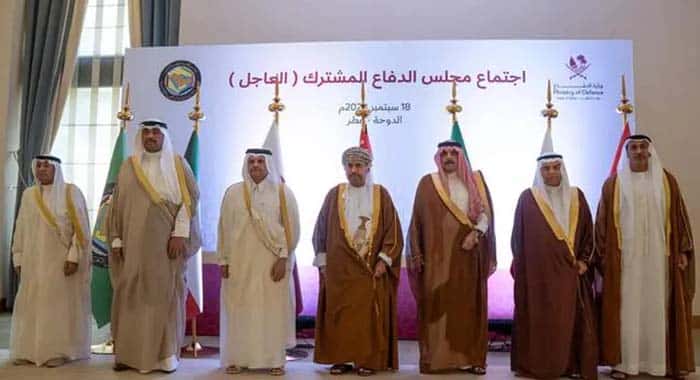The Gulf Cooperation Council (GCC) member states have announced far-reaching measures to fortify collective defense, including intensified intelligence sharing, accelerated development of a regional missile warning system, and joint military drills, in what officials described as a decisive step towards building a unified regional shield.
According to reports, citing a report in UAE daily The National, the announcement followed an Arab-Islamic emergency summit where leaders voiced grave concern over escalating conflict in the Middle East. GCC defense chiefs later convened in Doha to deliberate on unifying military intelligence and strengthening joint command structures.
The GCC — comprising Bahrain, Kuwait, Oman, Qatar, Saudi Arabia, and the United Arab Emirates confirmed that its unified military command would lead efforts to expand intelligence exchanges among member states. The bloc also pledged to fast-track the establishment of a regional early-warning mechanism against ballistic missile threats, with airspace monitoring data to be shared across all capitals.
Officials further announced that within three months, joint military and command center exercises will be conducted, followed by live air defense drills, marking a new phase of operational coordination. The communiqué underlined that persistent efforts would be made across military and intelligence domains to strengthen Gulf security cooperation and harmonize defense systems.
“The foremost priority is the security, stability, and protection of all GCC countries,” the statement said, while warning that the already fragile region faces mounting risks.
The Doha meeting brought together all six GCC defense ministers — UAE Minister of State for Defense Affairs Mohammed Al-Mazrouei, Bahrain’s Defense Minister Lt. Gen. Abdullah Al-Nuaimi, Saudi Deputy Defense Minister Prince Abdulrahman bin Mohammed, Oman’s Defense Secretary General Mohammed Al-Zaabi, Kuwait’s Defense Minister Sheikh Abdullah Ali Al-Abdullah Al-Sabah, and Qatar’s Jassim Al-Budaiwi. Officials stressed that the rare full ministerial attendance underscored the urgency of building a collective defense shield.
The gathering also strongly denounced recent attacks in Doha as a “dangerous and unacceptable provocation,” which left several Palestinian delegates dead, including the son of a senior political leader and a Qatari security officer. Qatar maintained it had not been given prior warning of the strike, while Hamas confirmed that its top leadership escaped unhurt.
Analysts observed that while the GCC has long championed military integration, such initiatives have often faltered due to political rivalries and differing threat perceptions. However, Thursday’s agreement was widely described as a turning point, with Gulf officials signaling that the region’s security environment demands unprecedented unity.





